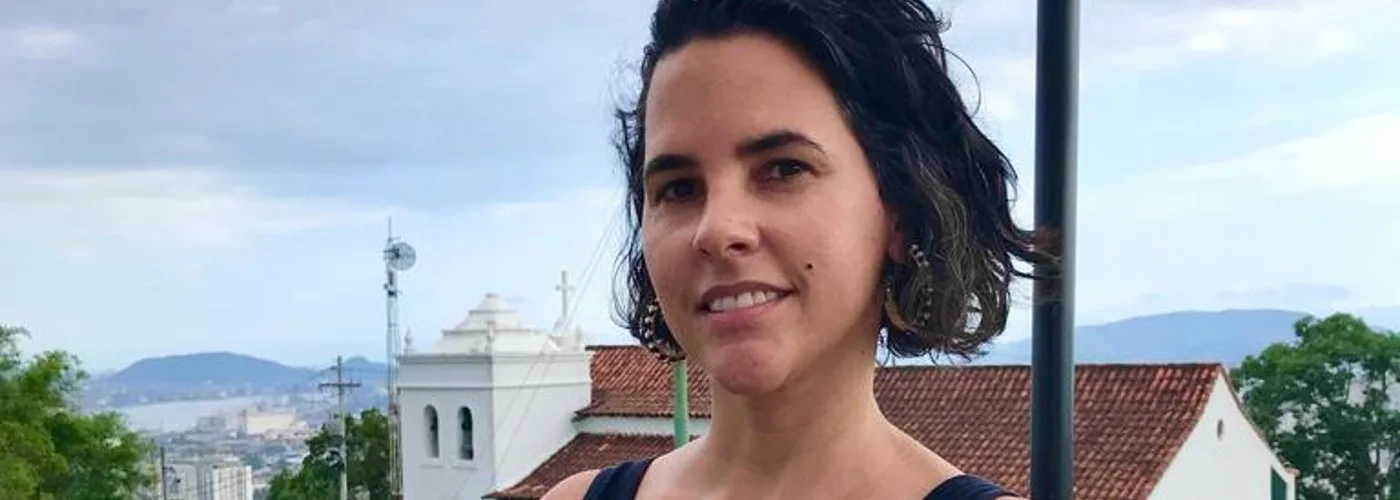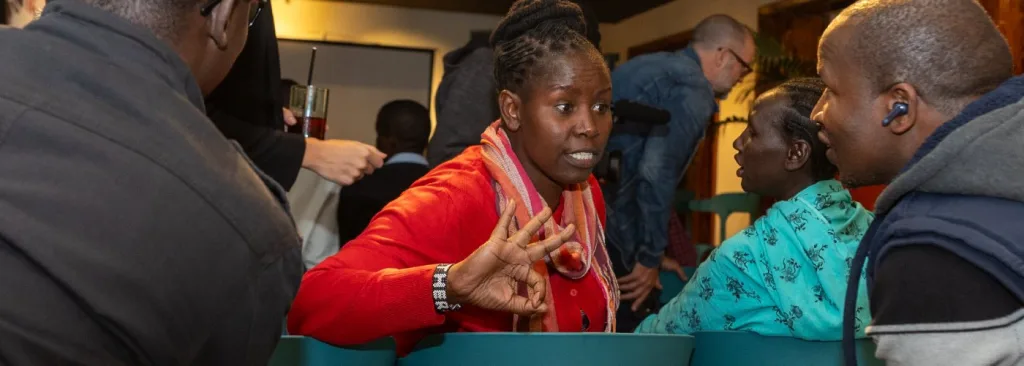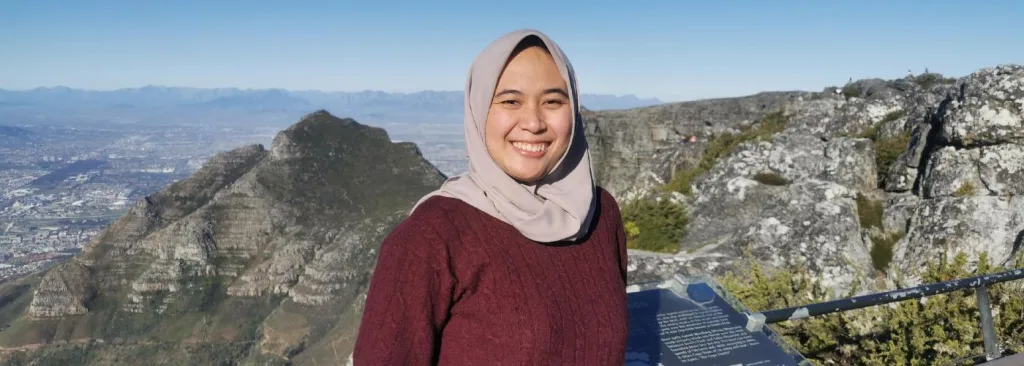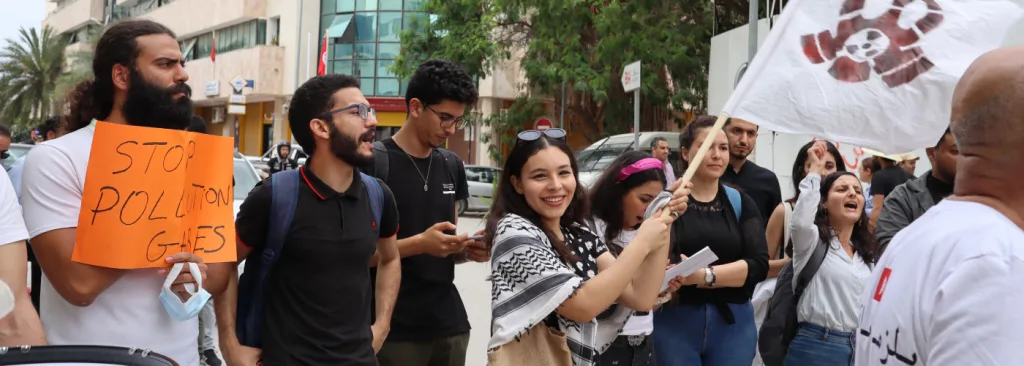Paula Moreira is a program manager at Hivos in Brazil. She runs our Voices for Just Climate Action (VCA) program, working with local communities to make their voices heard in national and global discussions on the climate crisis.
We talked to her about climate change in Brazil, the ways it affects its people, and the work Hivos is doing to fight it.
How does climate change affect Brazil?
We’re having extreme weather events much more frequently. Heavy rains can cause landslides, injuring and killing people both in the mountains and in the Favelas around Rio de Janeiro. People are taken by surprise and don’t have enough time to flee. They’re poor and their flimsy wooden homes can’t protect them against landslides. The elderly and the sick are most at risk because they’re less mobile, as well as women, who are at home taking care of their kids. Heavy rains also cause floods that sweep away houses in riverside areas in the Amazon and in cities like Nova Friburgo, Rio de Janeiro and Sao Paulo.
But since September we’ve also had a prolonged drought that’s affecting the Amazon rainforest, where parts of rivers like the Negro river have completely dried up. This results in food shortages for riverside populations because there’s no fish to catch. At the same time, they get cut off because they rely on the river for transport. This restricts their access to healthcare and school.
Traditional farmers are also seeing changes in seasonal rainfall patterns, which in turn jeopardize their food security. Communities have to move elsewhere, which erodes their cultural and social fabric.
What does just climate action mean to you?
I already mentioned the urban poor and women: we see that climate change hurts certain groups more than others. While Indigenous Peoples risk their lives to defend the forest, they are rarely heard from at international and national climate change forums. It’s more than high time to include these vulnerable groups in climate action decision-making. This is exactly what the VCA coalition partner Coordination of the Indigenous Organizations of the Brazilian Amazon (COIAB) is doing (@coiabamazonia).
To be fair and just, climate action also needs to address underlying issues that make these groups vulnerable in the first place. Think of economic, racial, gender and geographic issues. Climate policies should also not deepen these other vulnerabilities. Instead, “just climate action” empowers civil society, builds on local solutions, strengthens grassroots movements, values traditional knowledge, and prioritizes the fight against environmental racism across the board.
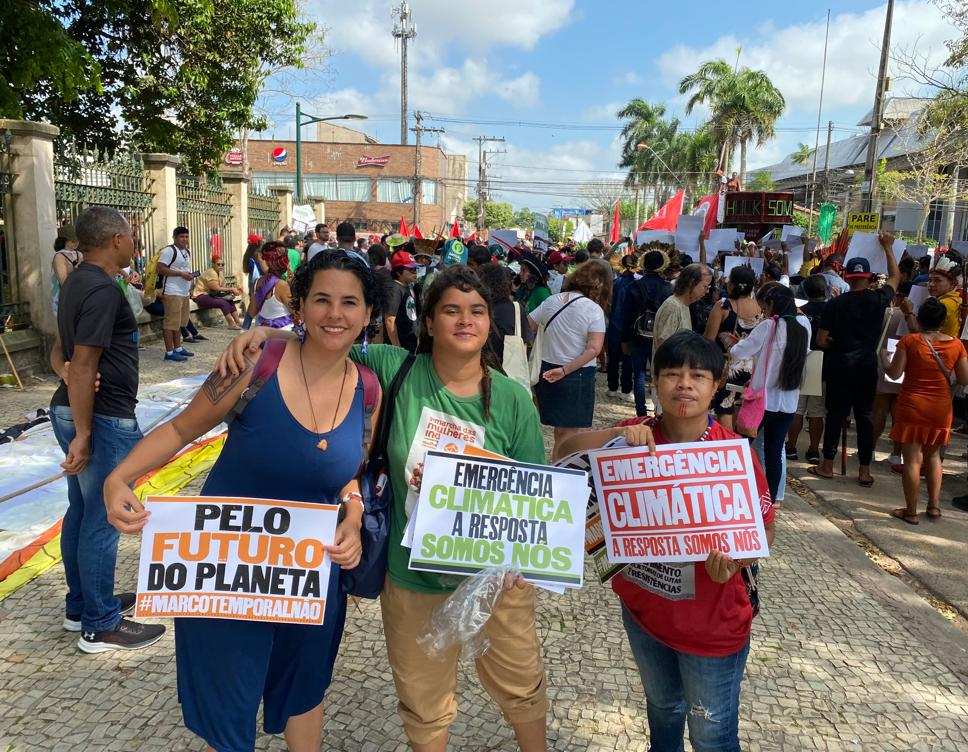
What has Voices for Just Climate Action achieved in Brazil?
The program needs to be extra ambitious in Brazil because it’s such a big country. We’ve been working towards uniting different parts of the country behind a common agenda. This is difficult because climate change affects different parts of Brazil in different ways.
We support eight coalitions in Brazil that include up to 40 local grassroots organizations. They do very different things. Take Megafone Activism (@megafoneativismo), which makes murals and uses other activist art to amplify the voices of activists from the Amazon and mobilize people nationally and abroad in the fight for climate justice. Or take Banzeiros Radios coalition (@tapajosdefato), which specifically reports on violence against environmental and human rights activists in remote places in the Amazon.
A third partner, Jandyras Network (@RedeJandyras), tries to incorporate local voices into policy-making. For example by placing loudspeakers in Belém municipality that inform the residents about local environmental policy. Another way to involve local communities is working with them to map the effects of climate change on their lives and surroundings, which is what our partner InfoAmazonia does. They’re a member of the Data Ecosystem coalition that built a bottom up data platform to bring remote Amazon voices into the national climate justice debate (@movimentoplantaformas, @casapretaamazonia, @openknowledge).
However, I’m most proud of the fact we build connections between these different and diverse groups. This is important because together they can wield more influence to change national public opinion, and as a result, public policies. These collaborations have produced successful workshops, forums and festivals, especially supported by the feminist Brazilian Equit Institute (@institutoequit), from the Piracema coalition.
What motivates you personally to do this work?
I’m very connected to the issue of how the climate crisis affects people’s lives because I come from an agricultural family. We’ve always grown coffee, which is very sensitive to changing climate conditions. Droughts or heavy rains easily damage the crops.
My background has made me very aware that climate change has profound social consequences.
The changing climate also means that coffee plants don’t flower all at once in July, as used to be the case. Now some plants flower in May. This creates much more work because instead of harvesting in one go, we need to do early selective picking of the berries that are already ripe. My family had to give up coffee production because of all this extra work.
My background has made me very aware that climate change has profound social consequences, and this inspires me to work for climate justice. Part of the solution is to listen to local people themselves. Take my family, who had actually started to adapt to the changing climate by planting native trees that protect the coffee plants from sunshine, heavy rain and wind. Voices for Just Climate Action emphasizes the importance of this kind of Indigenous and local knowledge.
What’s next for climate justice in Brazil?
We want to continue bringing the local climate knowledge, solutions and stories, sometimes from very remote places, to the spaces where the decision-making happens. We want to support activities that integrate areas of climate justice with civic rights in the digital sphere and with gender and diversity.
We also want to collaborate more closely with VCA implementing partners in Kenya, Zambia and Tunisia. And also with Uganda, where the VCA alliance member feminist think tank Akina Mama Wa Afrika (AmWA) works. Brazil was colonized and had a slavery-based economy for more than 350 years. More than 50% of our population define themselves as non-white. Brazil’s post-colonial education system and culture are based on a deep-rooted heritage of colonialism and patriarchy.
I believe that the collaboration with African VCA movements, in particular feminist climate justice movements, is enormously powerful for tackling environmental and climate racism and creating just climate action and policies. That’s why we’re currently looking to work together with AmWA to train women in, amongst others, political leadership. We also want to co-produce a publication on feminist local climate solutions.
About Voices for Just Climate Action
The Voices for Just Climate Action (VCA) program, initiated in January 2021, is a lobby and advocacy program implemented by an alliance led by four strong Southern CSOs: Akina Mama wa Afrika, Fundación Avina, Slum Dwellers International and SouthSouthNorth, and two Global CSOs: Hivos and WWF-Netherlands, under the Dutch Ministry of Foreign Affairs’ five-year strategic partnership: “Power of Voices.” The program aims to ensure that by 2025, local civil society and underrepresented groups will have taken on central roles as creators, facilitators, and advocates of innovative and inclusive climate solutions.

